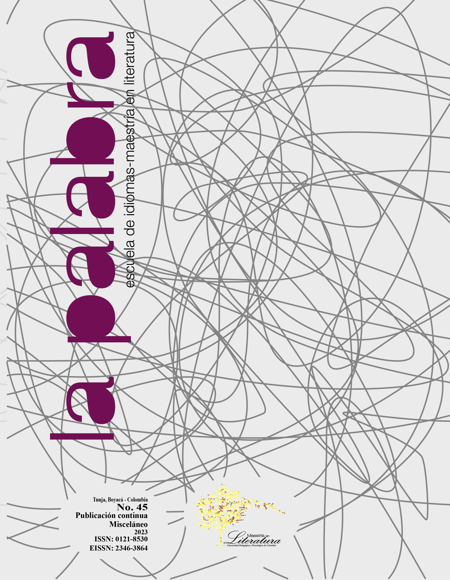Temporality and Simulacrum of the Medieval Past in the Literary Present of Postmodernity: the Reformulation of the Story of Apollonius of Tyre in Mark Haddon’s The Porpoise

Abstract
The main outcome of this paper is to analyze how the medieval past is recovered postmodernity, through the reformulation of the story of Apollonius of Tyre in Mark Haddon’s recent novel The Porpoise. The research focuses on what the novel highlights from the medieval account of the hero’s adventures: the incest between King Antiochus and his daughter, an abused young woman who takes center stage in the present narrative, along with other female victims of oppression in the story. In context of recent debates about the recovery of medieval past, the article focuses on the rewriting of Apollonius’ story and the literary techniques used to update it. The aim is to contribute to make visible current issues such as gender violence, which The Porpoise develops through the simulacrum of history and the spatialization of time as privileged resources.
Keywords
Apollonius of Tyre, Mark Haddon, The Porpoise, medieval past, present tense, nature, gender-based violence
Author Biography
Carina Zubillaga
Regular Assistant Professor of Spanish Literature I (Medieval) at the Universidad de Buenos Aires, where she graduated as Doctora en Letras in 2007. She is an Independent Researcher at IIBICRIT (CONICET), where she joined as a fellow in 2003. She is a member of the International Association of Hispanists and the Hispanic Association of Medieval Literature, among others. She has published numerous articles in specialized journals on medieval and neo-medieval topics and two critical editions of miscellaneous manuscripts.
References
- Baudrillard, Jean. Cultura y simulacro. Editorial Kairós, 1978. Impreso.
- Bauman, Zygmunt. Modernidad líquida. Fondo de Cultura Económica, 2003. Impreso.
- Bloch, Mark. La sociedad feudal. Akal, 1968. Impreso.
- Delort, Robert. La vie au Moyen Âge. Editions Seuil, 1982. Impreso. DOI: https://doi.org/10.3917/ls.delor.1982.01
- Deyermond, Alan. “Emoción y ética en el Libro de Apolonio”. Vox Romanica, núm. 48, 1989, pp. 153-164. Impreso.
- Fisher, Mark. Los fantasmas de mi vida: escritos sobre depresión, hauntología y futuros perdidos. Caja Negra Editora, 2018. Impreso.
- Gower, John. Confesión del amante. Anejos del Boletín de la RAE, 1990. Impreso.
- Guriévich, Arón Iakovlevich. Las categorías de la cultura medieval. Taurus, 1990. Impreso.
- Haddon, Mark. El curioso incidente del perro a medianoche. Salamandra, 2004. Impreso.
- –. El delfín. Salamandra, 2021. Impreso.
- Huertas Morales, Antonio. La Edad Media contemporánea. Estudio de la novela española de tema medieval (1990-2012). Academia del Hispanismo, 2015. Impreso.
- Jameson, Fredric. Posmodernismo. La lógica cultural del capitalismo avanzado. La marca editora, 3 vols., 2015. Impreso.
- Le Goff, Jacques. Lo maravilloso y lo cotidiano en el Occidente medieval. Editorial Gedisa, 1994. Impreso.
- Lyotard, Jean-François. La condición postmoderna: informe sobre el saber. Cátedra, 1984. Impreso.
- Shakespeare, William. Teatro completo. Galaxia Gutenberg, 2006. Impreso.
- Zubillaga, Carina. “La actualidad de la historia medieval de Apolonio de Tiro en El delfín de Mark Haddon”. Signum, núm. 22.1, 2021, pp. 116-131. Web. 28 de diciembre de 2021. http://www.abrem.org.br/revistas/index.php/signum/article/view/587
- Zumthor, Paul. La medida del mundo. Cátedra, 1994. Impreso.